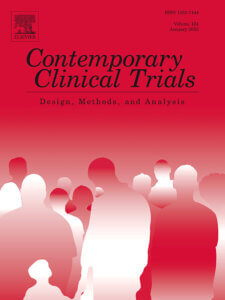 The NIH Pragmatic Trials Collaboratory has developed an online tool to evaluate the complexity of delivery of a trial intervention. To develop the tool, principal investigators of embedded pragmatic clinical trials (ePCTs) shared critical drivers of complexity that affected their ability to implement an intervention and discern treatment effects. An article describing the tool and its development was published today in Contemporary Clinical Trials.
The NIH Pragmatic Trials Collaboratory has developed an online tool to evaluate the complexity of delivery of a trial intervention. To develop the tool, principal investigators of embedded pragmatic clinical trials (ePCTs) shared critical drivers of complexity that affected their ability to implement an intervention and discern treatment effects. An article describing the tool and its development was published today in Contemporary Clinical Trials.
“The complexity of the intervention delivery can have implications for study planning, ability to maintain fidelity to the intervention during the trial, and/or ability to detect meaningful differences in outcomes,” the authors wrote.
The tool consists of 6 domains comprised of internal and external factors that can impact complexity.
- Internal factors pertain to the intervention itself:
- the degree to which the intervention requires re-engineering of existing work flows and tasks;
- the number of components in the intervention to be delivered; and
- the level of familiarity or extra training needed for those delivering the intervention.
- External factors are related to intervention delivery at the system level:
- the degree to which delivery of the intervention is dependent on setting in which it is implemented;
- the number of health care systems and clinics involved in delivering the intervention; and
- the number of steps between the intervention and the outcome’s intended effect.
The authors hope the tool will enable communication about potential challenges of intervention delivery.
“By raising awareness about and increasing preparedness for the potential pitfalls of delivering the intervention within the ePCT design, we hope that this version of the tool will be useful to the trial team and its health system partners during trial planning and conduct,” they wrote.
Future work is planned to further refine the tool based on input from other networks that conduct ePCTs. The tool is free to use and availble online.


